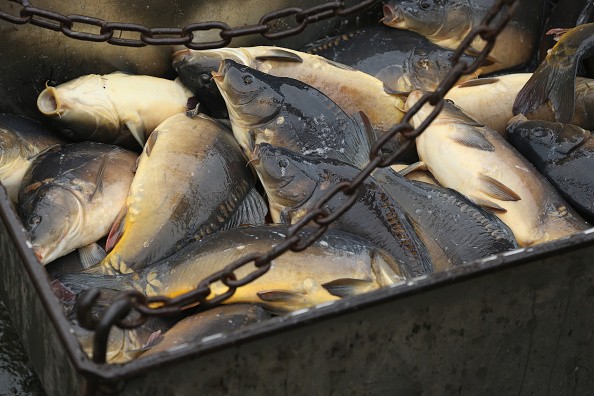By Asma Majid, | August 26, 2016

Carp fishing
A study published in the Proceedings of the Royal Society B on August 25 confirmed that carp fish in the Madagascar are undergoing ''reverse evolution" to return to their primitive scaly state after they were selectively bred to make them less scaly a century ago.
Like Us on Facebook
Around the turn of the 20th century, a group of monks in Europe embarked on a mission to make carp less work to prepare for eating. They bred them to have fewer and fewer scales over successive generations and were so successful that the fish became known as mirror carp because of their newly reflective properties. This made the scale-less fish easier to gut and cook.
Then, in 1912, a group of Europeans released mirror carp into the wild in Madagascar. Until that time, no carp existed in the region.
The program was considered a success as the fish rapidly grew in number and flourished in the new environment. But it did not take long for the breeding process to begin reversing itself. As early as 1950, people in the area started reporting that the carps were becoming more scaly.
In this new study, the researchers sought to better understand the evolutionary process that the fish have been undergoing over the course of the past century. The study consisted of capturing approximately 700 specimens in Madagascar and analyzing both their scales and DNA.
The result of the study, published in the Proceedings of the Royal Society B, stated that approximately 65 percent of the carps caught in the area were fully scaled. The researchers also found out that the new scales were not the result of a reversal of the DNA changes that occurred when they were bred to have fewer scales; suggesting that different genes were involved in rescaling.
It was concluded that the fish had evolved back to its original form over the course of just 100 years, which translated to just about 40 generations; a mere blip in general evolutionary terms. Scaled carps are known to survive better in the wild compared to the mirror carp, likely because of the protection that scales offer from predators and parasites. Their reappearance is telling of how much pressure a creature's environment can put on an animal to quickly evolve.
-
Use of Coronavirus Pandemic Drones Raises Privacy Concerns: Drones Spread Fear, Local Officials Say

-
Coronavirus Hampers The Delivery Of Lockheed Martin F-35 Stealth Fighters For 2020

-
Instagram Speeds Up Plans to Add Account Memorialization Feature Due to COVID-19 Deaths

-
NASA: Perseverance Plans to Bring 'Mars Rock' to Earth in 2031

-
600 Dead And 3,000 In The Hospital as Iranians Believed Drinking High-Concentrations of Alcohol Can Cure The Coronavirus

-
600 Dead And 3,000 In The Hospital as Iranians Believed Drinking High-Concentrations of Alcohol Can Cure The Coronavirus

-
COVID-19: Doctors, Nurses Use Virtual Reality to Learn New Skills in Treating Coronavirus Patients







